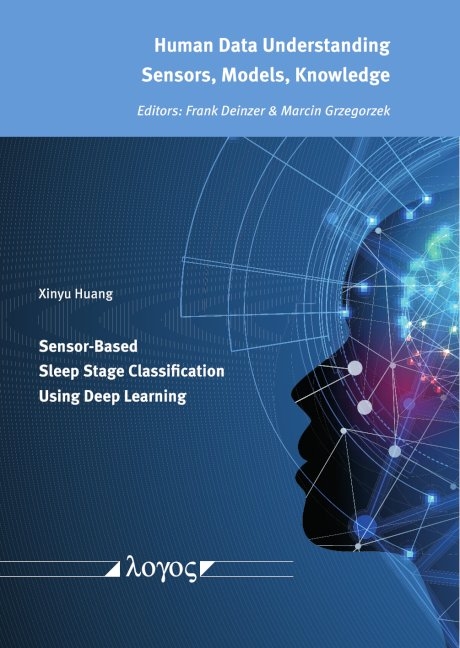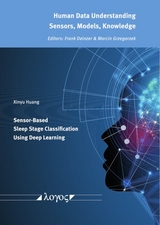Sensor-Based Sleep Stage Classification Using Deep Learning
Seiten
Sleep is a cyclic physiological phenomenon, an important aspect of human life activity, which, like sport and diet, is a nutritional element that ensures the growth and development of the organism. Under the influence of various factors such as work and study stress and metabolic disorders, more and more people suffer from various types of sleep disorders. Sleep has become an important research topic in recent years. Sleep stage analysis plays an important role in the early detection and treatment of sleep disorders. However, different age groups show different symptoms of sleep disorders, and different sleep disorders show variability in their different sleep stages. The prevalence of sleep disorders is much higher in children than in adults. Although the classification of sleep stages in adults has been well studied, children show markedly different characteristics of sleep stages. Therefore, there is an urgent need for sleep stage classification in children. With the rapid development of intelligent computing technology, artificial intelligence has found wide application in medical research and health sciences in recent years.
In the field of sleep medicine, deep learning approaches can efficiently and automatically learn abstracted relevant sleep features from collected sleep data to accurately interpret children's sleep stages accordingly. Compared to traditional sleep data analysis, this saves many manual and time resources for data annotation and helps sleep experts reduce the risk of misdiagnosing sleep disorders based on their prior knowledge. In this context, this book presents several advanced deep learning-based approaches for sleep stage classification in children using time series polysomnography recordings acquired from clinical sensor devices. Significantly improved performance in classifying sleep stages in children suffering from sleep disorders demonstrates the great potential of joint research and development between artificial intelligence and the field of sleep medicine.
In the field of sleep medicine, deep learning approaches can efficiently and automatically learn abstracted relevant sleep features from collected sleep data to accurately interpret children's sleep stages accordingly. Compared to traditional sleep data analysis, this saves many manual and time resources for data annotation and helps sleep experts reduce the risk of misdiagnosing sleep disorders based on their prior knowledge. In this context, this book presents several advanced deep learning-based approaches for sleep stage classification in children using time series polysomnography recordings acquired from clinical sensor devices. Significantly improved performance in classifying sleep stages in children suffering from sleep disorders demonstrates the great potential of joint research and development between artificial intelligence and the field of sleep medicine.
| Erscheinungsdatum | 07.04.2023 |
|---|---|
| Reihe/Serie | Human Data Understanding - Sensors, Models, Knowledge ; 4 |
| Sprache | englisch |
| Maße | 170 x 240 mm |
| Einbandart | Paperback |
| Themenwelt | Mathematik / Informatik ► Informatik ► Theorie / Studium |
| Mathematik / Informatik ► Mathematik ► Wahrscheinlichkeit / Kombinatorik | |
| Schlagworte | Artificial Intelligence • Deep learning • Medical data science • Sleep stage classification • Time-series analysis |
| ISBN-10 | 3-8325-5617-6 / 3832556176 |
| ISBN-13 | 978-3-8325-5617-4 / 9783832556174 |
| Zustand | Neuware |
| Haben Sie eine Frage zum Produkt? |
Mehr entdecken
aus dem Bereich
aus dem Bereich
Grundlagen – Anwendungen – Perspektiven
Buch | Softcover (2022)
Springer Vieweg (Verlag)
34,99 €
was jeder über Informatik wissen sollte
Buch | Softcover (2024)
Springer Vieweg (Verlag)
37,99 €
Eine Einführung in die Systemtheorie
Buch | Softcover (2022)
UTB (Verlag)
25,00 €




